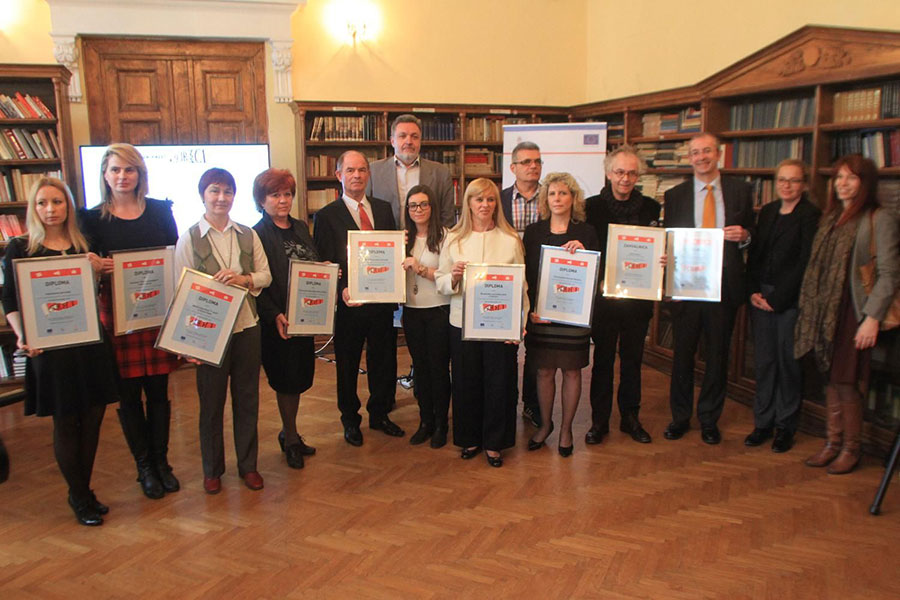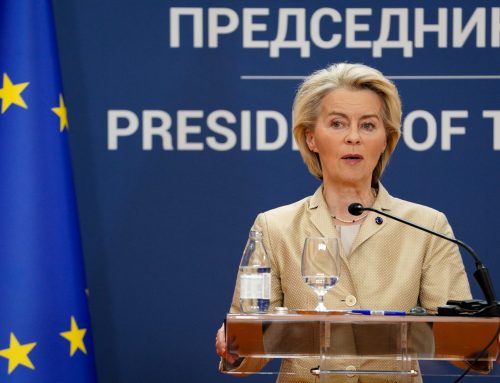Today, students and teachers from nine high schools in Serbia, who had participated in pilot campaign on media literacy, were presented with recognition letters in Belgrade for their successfully implemented projects in this area.
Campaign “If You Have Something to Say – Say It“ was launched in September 2015 and funded by the EU in partnership with Ministry of Culture and Information. Students and members of school literary and journalism sections in high schools from Belgrade, Cacak, Nova Varos, Paracin, Sremski Karlovci, Novi Sad, Smederevska Palanka and Becej have made school web-sites, modernised school newspapers and produced videos together with their teachers.
At the ceremony organised at the Third Belgrade High School, Head of EU Delegation to Serbia Michael Davenport said not only the science and technology developed quickly, in last 10 years in particular, but also media, which is why we all had to be more media literate.
“This kind of speed and efficiency of the technology we use has changed the media and media content and hence obliged to us to be media literate in taking stands and making decisions. To be even more media literate, I would say,“ Davenport said.
Davenport explained that at the beginning, the project included three schools – Third Belgrade High School from Belgrade, Karlovac High School and Economy and Trading School from Paracin.
“The campaign ran from September to December and included 40 schools, whereas six schools from Cacak, Novi Sad, Nova Varos, Smederevska Palanka, Becej and Belgrade have submitted the best projects. We have started organising debates with students, and today we are finishing the campaign with nine different products, the results of your work,“ Ambassador said.
According to him, even though the project did not envisage awards, participants will, however, be awarded.
“There will be awards. You and your teachers will go on an excursion and visit Ljubljana, Vienna, Bratislava and Budapest,“ Davenport said, announcing the trip for 9 May.
Minister of Culture Ivan Tasovac said that, in stead of making media, the Internet and new technologies generators of knowledge, they “often become breeding ground of hate speech and disinformation spreading.“
“I sometimes feel as if we are living in the era of digital anarchy… in order to understand the context of message and media content, and behave responsibly, it is necessary to continuously broaden our media knowledge. That was the goal of this pilot campaign,“ he said.
He added that the concept of media literacy found its place in a number of laws. “Our common obligation is to influence as much as we can on media content so as to make it more appropriate and literate… Media literate audience is one of the strongest footholds of any democratic society,“ Tasovac said.




